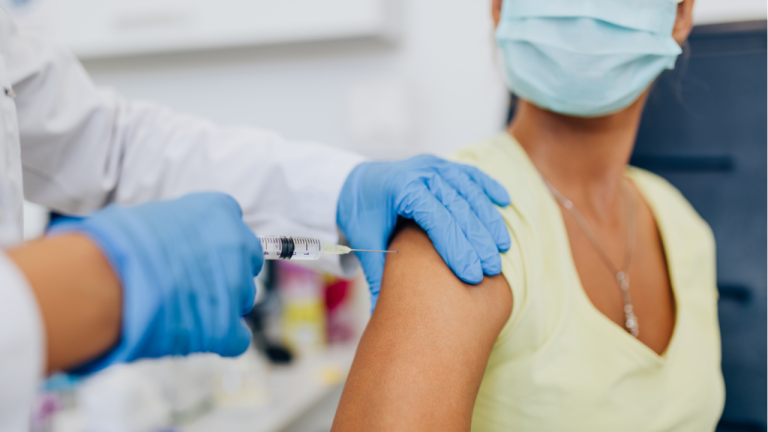Everything you need to know about the booster dose
The booster dose of the Covid-19 vaccine is now available to all adults in England. If you have any questions about the booster, this advice from NHS and GOV.UK can help.

Who can get a booster dose?
Everyone aged 18 and over can get a booster dose of the Covid-19 vaccine.
It must be 3 months since your second dose and you do not need to wait to be contacted by the NHS or your GP.
How do I get a booster dose?
To get a booster dose, you can:
- book an appointment at a vaccination centre or site through the NHS
- go to a walk-in clinic, without having an appointment booked
Why do I need a booster dose?
The booster dose is our best defence against Covid-19, particularly with the emergence of the Omicron variant. The booster gives a huge increase in your ability to fight the new variant. Early data suggested that the booster prevents about 75% of people from getting symptoms from the Omicron variant.
Omicron is projected to become the dominant Covid-19 variant in the UK by mid-December, so it is more important than ever to get two jabs plus your booster.
What type of vaccine will I get for my booster?
You are most likely to receive the Pfizer or Moderna vaccine for your booster. They have been shown to be very effective as boosters.
If you can’t have the Pfizer or Modern vaccine, you may be offered the AstraZeneca vaccine.
There is no need for your booster to be the same vaccine as your previous two doses.
What side effects will I get after the booster dose?
You might experience short-term side effects, similar to those felt after the first and second dose. These can include a sore arm, tiredness, a headache and muscle pains.
People under the age of 70 are more likely to have short-term side effects. They can be treated with paracetamol and usually last no longer than a day or two.
Can I have a booster if I have Covid-19 symptoms?
If you have symptoms, you should book a PCR test and self-isolate until you get your results. You should not attend a booster appointment or clinic if you are waiting for your results. You can rearrange your appointment for a later date.
If you test positive, you need to wait 28 days to have your booster.
If you test negative, you can get your booster at any time.
Find out more about what to do if you have Covid-19 symptoms.
Apart from getting my booster, how else do I protect against Covid-19?
It is more important than ever that everyone regularly self-tests to make sure they do not have Covid-19.
It is vital to continue to practice hands, face, space. Everyone should wash their hands regularly, wear a face covering in crowded spaces and keep space from others wherever possible.
Ventilation is also important, particularly if someone in your household has Covid-19 or if you are indoors with people you do not live with. The more fresh air you can let into a room, the quicker any airborne virus will be removed and the lower your chance of catching or spreading Covid-19.
The government advises that everyone should work from home if they can.
If I have had my booster dose, do I still need to test for Covid-19?
Yes, everyone should regularly self-test for Covid-19, even if you have had your booster dose.
While it is much less likely, it is still possible to catch Covid-19 after having a booster dose. Regular self-testing will let you know if you have Covid-19 so you can self-isolate and avoid passing it on to anyone else. Around 1 in 3 people with Covid-19 do not have any symptoms, so you might be carrying it without realising.
Where do I get self-tests (lateral flow tests) from?
You can order packs of self-tests online or collect them from pharmacies and libraries in Essex.
Find out more about how to get a pack of self-tests.
Visit Essex Covid Vaccine – NHS for more information about the booster programme in Essex.
